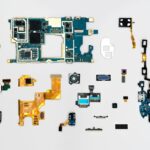
Introduction to Smart Cities
Definition and Concept
Smart cities represent an innovative approach to urban planning, integrating technology and data to enhance the quality of life for residents. This concept revolves around the use of the Internet of Things (IoT), big data, and renewable energy to create efficient, sustainable urban environments. Imagine a community where traffic lights adjust based on real-time traffic conditions or where waste management systems notify collection services when bins are full.
Importance of Smart Cities
The significance of smart cities cannot be overstated; they are vital for addressing modern urban challenges. By leveraging smart technologies, cities can:
- Enhance public services: Provide real-time information, improving emergency response and maintenance services.
- Promote sustainability: Reduce energy consumption and carbon footprints through efficient resource management.
- Encourage economic growth: Facilitate innovation and attract businesses looking for modern infrastructure.
This transition to smart urban landscapes ensures a better future for generations to come, fostering interconnectedness and resilience within urban settings.
Evolution of Electrical Engineering in Smart Cities
Historical Perspective
The evolution of electrical engineering in smart cities has its roots firmly planted in the industrial revolution. Initially focused on basic power generation and distribution, the field has expanded dramatically. Early engineers laid the groundwork for electrical systems that powered homes and manufacturing. Fast forward to the late 20th century, when the rise of computers and digital technologies began revolutionizing how cities functioned. This laid a foundation for systems that could later be enhanced with connectivity and data analytics.
Technological Advancements
Today, smart cities thrive on cutting-edge technologies that elevate urban living. Key advancements include:
- Smart Grids: Enhancing energy efficiency by allowing two-way communication between consumers and utilities.
- Automated Control Systems: Managing everything from streetlights to public transportation in real time.
These advancements illustrate the profound impact electrical engineering has on shaping the future of urban living, making it not just interconnected but also intelligent and sustainable. As cities evolve, electrical engineers play a pivotal role in this transformative journey, continually adapting and innovating to meet urban demands.
Key Technologies Utilized by Electrical Engineers
Internet of Things (IoT)
Continuing from the monumental shifts in electrical engineering, one of the most significant contributions is the integration of the Internet of Things (IoT) in smart cities. Imagine a world where streetlights adjust their brightness based on pedestrian presence, or waste bins signal when they're full for timely pickups. This interconnected network allows for:
- Real-time monitoring: Collects and analyzes data to make informed decisions.
- Enhanced efficiency: Optimizes resource use and reduces operational costs.
Renewable Energy Integration
In addition to IoT, the integration of renewable energy sources is a game-changer for sustainable smart cities. Electrical engineers are crucial in designing systems that harness solar, wind, and other renewable energies. For example, combining solar panels with smart grids allows for:
- Decentralized energy production: Empowering communities to generate their own electricity.
- Reduced carbon footprints: Supporting city-wide sustainability goals.
Together, these technologies empower electrical engineers to shape the future of urban living, fostering a more resilient and eco-friendly environment.

Infrastructure Development in Smart Cities
Power Grid Upgrades
Building on the key technologies discussed, infrastructure development is essential for realizing the full potential of smart cities. One critical component is upgrading the power grid. The modern smart grid incorporates:
- Advanced metering infrastructure: Providing real-time data for better energy management.
- Automated fault detection: Quickly identifying and resolving issues to minimize outages.
These upgrades create a more resilient energy network, ensuring that cities can adapt to changing demands while reducing their environmental impact.
Smart Building Solutions
In tandem with power grid improvements, smart building solutions revolutionize how we interact with our living and working spaces. These buildings utilize technologies like:
- Energy-efficient systems: Such as smart thermostats and automated lighting, which significantly lower energy consumption.
- Integrated management platforms: Allowing for seamless control of various building functions from a single dashboard.
By incorporating these solutions, cities can enhance Comfort and sustainability, proving that infrastructure development is not just about bricks and mortar but about creating livable spaces that utilize resources wisely.
Role of Electrical Engineers in Transportation Systems
Traffic Management Systems
Following the advancements in smart city infrastructure, electrical engineers play a pivotal role in revolutionizing transportation systems. One of their key contributions lies in designing advanced traffic management systems that facilitate smoother flow and reduce congestion. These systems often include:
- Adaptive traffic signals: Adjusting timings based on real-time traffic conditions.
- Integrated surveillance: Monitoring and analyzing traffic patterns to inform city planning.
By enhancing traffic efficiency, engineers help improve air quality and commute times for residents, fostering a more livable urban environment.
Electric Vehicle Charging Infrastructure
As electric vehicles (EVs) gain popularity, the need for a robust charging infrastructure becomes paramount. Electrical engineers are instrumental in planning and developing charging stations throughout urban areas. They focus on:
- Strategically placed charging points: Ensuring accessibility for all EV users.
- Fast-charging technology: Reducing waiting times for drivers, making EVs more appealing.
This transformation not only supports sustainable transportation but also positions cities as leaders in the green movement.
The Role of Electrical Engineers in Smart Cities
Overall, electrical engineers are the backbone of smart cities, facilitating seamless integration of technology into transportation. From optimizing traffic systems to encouraging the adoption of electric vehicles, their work ensures that cities are not only connected but also efficient and sustainable. Each innovation contributes to a brighter, smarter urban future that benefits everyone.





